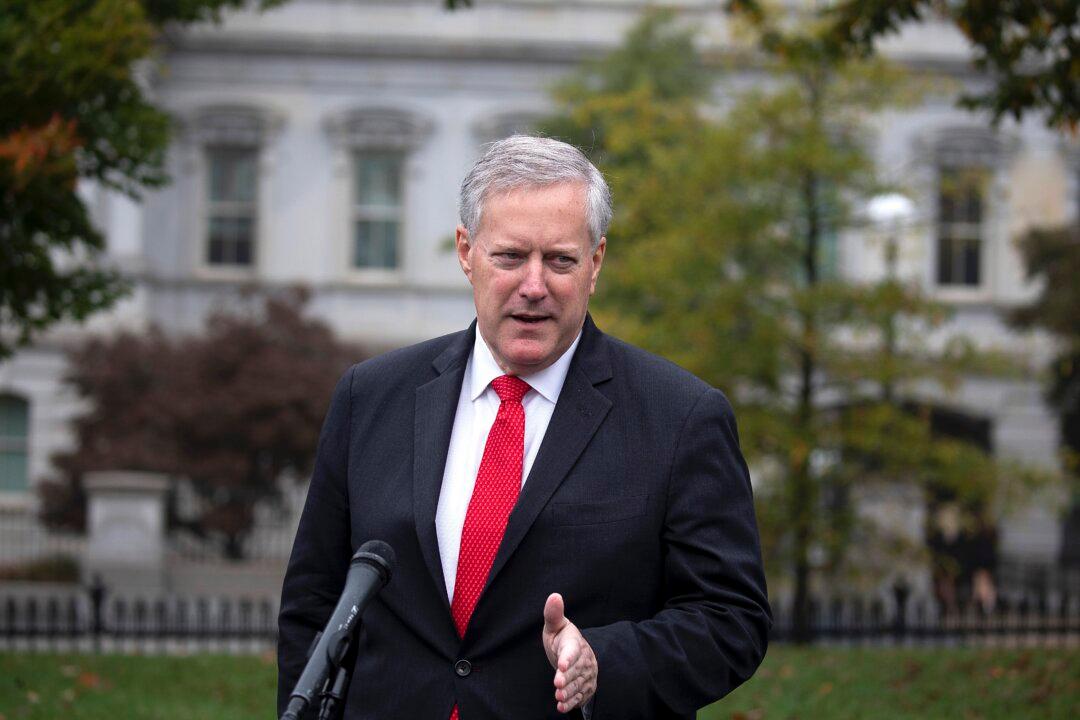An 11th Circuit Court of Appeals panel heard arguments on Friday regarding former chief-of-staff Mark Meadows’s attempt to move his case out of Georgia state court to federal court, where he would seek dismissal under a federal immunity defense.
Mr. Meadows had been an aide for former President Donald Trump with whom he was indicted in a Georgia racketeering case that originally accused 19 individuals of interfering with the 2020 presidential election results. He had promptly sought removal after the indictment was handed up, but a federal judge had remanded the case back to state court.





